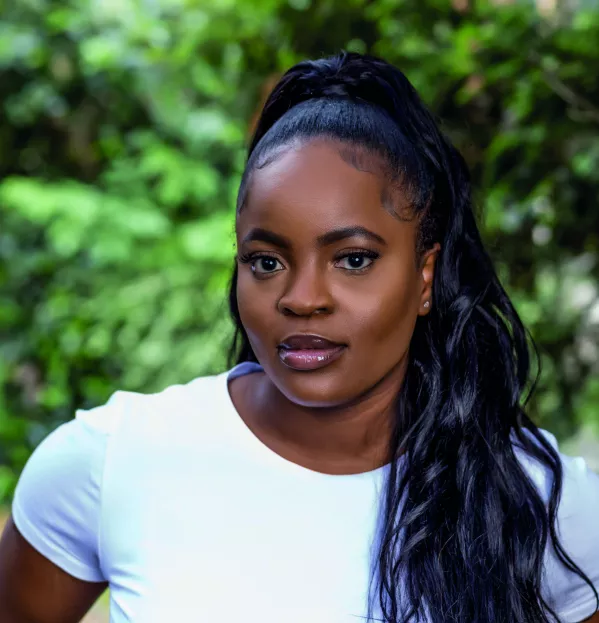What teenagers really want from sex education

If you want to know what teens really think, you need to look for the spaces where they feel most comfortable and thus are most likely to be honest. One such space comes in the form of revelatory podcast The Receipts - an unfiltered look at “anything and everything” by three young women promising “unadulterated girl talk”. Tes spoke to Tolani Shoneye, one third of the brains behind The Receipts, to ask what she believes teenagers want from their school regarding relationships and sex education (RSE).
Where do your listeners feel that schools tend to get it wrong when it comes to RSE?
I think the number one thing is to listen - actually listen - to what they’re saying, and don’t patronise or dismiss anything they say as “silly”, or [say] “don’t worry about that yet, you’re only 15”. Because at that age, to them, it is the biggest problem in the world. And although your own experience has taught you that it doesn’t matter in the long term, you can’t say that to them because it matters to that student so badly.
I would also be wary about following scripts when students come to you asking for advice. Whether it’s about a boyfriend or girlfriend who is making them feel uncomfortable, or they are questioning their sexuality, each situation is different, and there are tones and undertones to each situation, so think carefully before you respond.
What are the most common questions they come to you with around sex and relationships?
Young people want to know about how they go about balancing their romantic relationship with existing friendships. We hear a lot from teenagers who want to know how to manage wanting to spend all their time with this person that they really like and they’re obsessed with, but also not losing their friendships. We also hear from a lot of teenagers who want advice on the emotional side of friendships, for example, when they have a friend who likes the same person as they do.
One dilemma that really stuck with me, it was this girl who was friends with a guy for ages, and he got a girlfriend and she suddenly didn’t know where she was placed in his life any more. These kinds of emotional problems are probably much more problematic and cause a lot more upset when you’re a teenager than, actually, the physical side of sex.
In terms of the physical aspects of sex, though, what should teachers be aware of?
We have a lot of emails about feeling like virginity is something they have to lose. They see it as a sign of immaturity, and they put pressure on themselves to lose it before an important milestone, like going to university.
Not only that, but [we have] young people worrying about how they’ve gone through their teenage years and never had a boyfriend, and are wanting help or advice.
It usually comes down to worrying that they are behind their friends on this big event. It feels like everyone else around them has boyfriends and partners, and they’re upset about this feeling of being last to be picked.
What could teachers do to support students with these fears?
For teachers, I think it’s important for them not just to teach sex as a science lesson but also focus on the emotions, and speak about the pressures around sex. It might also be worth mentioning how virginity is perceived, and put emphasis on how much it’s a decision you can only pick for yourself. Losing your virginity isn’t about what your friends are doing or what your partner wants to do. It’s about you and what feels right for you.
With the easy availability of pornography, should schools change the way they approach sex education - and if so, how?
The accessibility of pornography means that a lot of kids have seen sex way before they are taught about it in school.
I do think that porn needs to be a part of sex education, but by that I am not saying students should be shown pornography. Instead, they should be told about how it’s not always reflective of real life. It’s just like action movies, romcoms or Disney films - porn is unrealistic, and damaging, if taken too seriously.
Should sex education be taught in single-sex or mixed-sex classes?
This is difficult; I think it’s important to mix classes because this is real life, but I also do think having single-sex classes allows a safe space for students to really talk. But this system does not consider how students identify. The idea of gender is so complex now; [a decision about]
mixing or not mixing needs to consider individual cases.
Grainne Hallahan is a senior content writer on Tes. She tweets @heymrshallahan
This article appeared in the 14 February 2020 edition of Tes magazine under the headline “Too much, too young”
You need a Tes subscription to read this article
Subscribe now to read this article and get other subscriber-only content:
- Unlimited access to all Tes magazine content
- Exclusive subscriber-only stories
- Award-winning email newsletters
Already a subscriber? Log in
You need a subscription to read this article
Subscribe now to read this article and get other subscriber-only content, including:
- Unlimited access to all Tes magazine content
- Exclusive subscriber-only stories
- Award-winning email newsletters